The All You Can Play Challenge offers kids the perfect opportunity for practicing competition. Learn how to encourage "healthy" competition with your kids. A big thanks to Chuck E. Cheese's for sponsoring today's post.
. . .
So, over the weekend, THIS happened —

The weather's been cold, and the kids were already starting to get antsy, so we decided to get some wiggles out and head to Chuck E. Cheese's for some uplifting family time.
It's been awhile since we've had the opportunity to go there with the girls. I was excited to learn that instead of buying tokens, now you can buy time with "All You Can Play" access.
Parents choose the amount of time for the family's visit, and then kids can play any game they want, as many times as they want, without any restrictions.
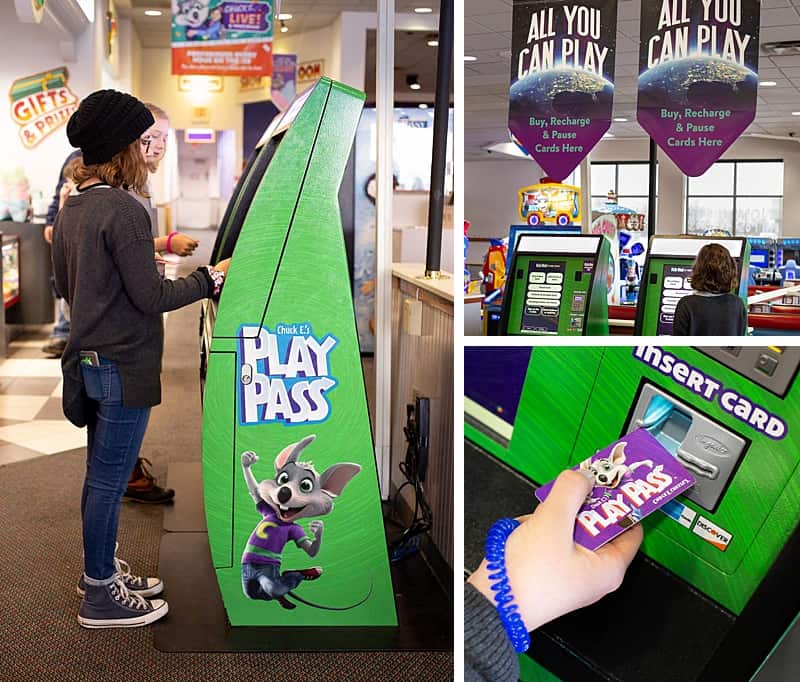
What does this mean?!?!
More family fun time and MORE TICKETS!
It. Was. Awesome.
All You Can Play access is also a great family opportunity to practice a bit of healthy competition. Invite your family to an All You Can Play Challenge to see who can get the most tickets during your allotted time. (I love how this little YouTuber yells, "The challenge is on! Let's go!")
I told my daughters that I was going to whoop their butts. OK, I didn't say it quite like that, but we did compete. And you can probably guess from the photo above with my youngest daughter holding a HUMONGOUS PILE of tickets that I didn't win the challenge.
Pssst . . . You can find 3 tips for how to actually win the Chuck E. Cheese's All You Can Play Family Challenge with your kiddos below!
But before we get to that, here's a bit of info to ensure you're encouraging a healthy drive for competition with your kids.
Is competition good for kids?
A healthy competitive drive helps kids:
- Learn to be vocal and stand up for themselves
- Be comfortable getting attention
- Override the desire to quit
These are all skill sets that will help them as adults.
Yes, parenting is about creating a safe and secure environment. But it's also about expanding your child's comfort zone. Kids need to practice the ups and downs that naturally come with competition, and it's great when they can do that with YOU as their guide. When done right, practicing competition can help your kids learn skills to use throughout their lives.
How can I encourage healthy competition?
Here are 3 quick tips for encouraging healthy competition.
1. Never put your child in a competition where he or she doesn't have a fighting chance of winning.
In other words, don't set your child up for failure from the get-go.
One thing I like about the All You Can Play Family Challenge at Chuck E. Cheese's is that the playing field is pretty even, no matter what the diversity of age ranges is in your family. There are a lot of fun "chance" games for kids with HUGE jackpots that allow them to rake in the tickets.

2. Allow your kids to fail.
Here's a simple truth — Kids aren't fooled by parents who say no one is keeping score. You've seen it on the sidelines of soccer games: Kids know exactly who's winning and it negates the value of giving a trophy to every player just for participating.
Instead of trying to deny that failure happens, teach your children to walk through the emotions of failure and to use it as a tool to succeed in the future.
3. Ask open-ended questions.
We can teach our kids to work through their challenges with a problem-solving approach. Gently ask simple open-ended questions like, "What could you have done to create a different result?"
For example, when our youngest was blowing her older sister out of the water in the All You Can Play Challenge, we asked something similar to help lead her to a new strategy to win.
BONUS TIP: Teach your child that the most important competitor is him- or herself.
If your child is feeling deflated after losing a group competition, shift the focus. For example, we've always encouraged our daughter to focus on beating her own swim meet times, rather than concentrating on where she places in the team.
While my daughter had fun competing with her dad at hoops at Chuck E. Cheese's, she had just as much fun competing with herself to see how many tickets she could get from one game of basketball to the next.

What does healthy competition look like?
When your kids are engaged in healthy competition, they'll:
- Eagerly ask to participate in an activity again, instead of giving up
- Be able to gracefully lose (and win!)
- Happily learn new skills and want to better themselves
Again, this little YouTuber cracks me up, "The challenge is on! Let's go!" That's a fun and healthy attitude toward competition!
At our house, we've taught our girls that when they lose and want to give it another go, they should say,
Good game! Best of three?"
At the start of our All You Can Play access, I was kicking butt at Skee-Ball. That quickly changed with a couple of "Best of out three?" requests, though.
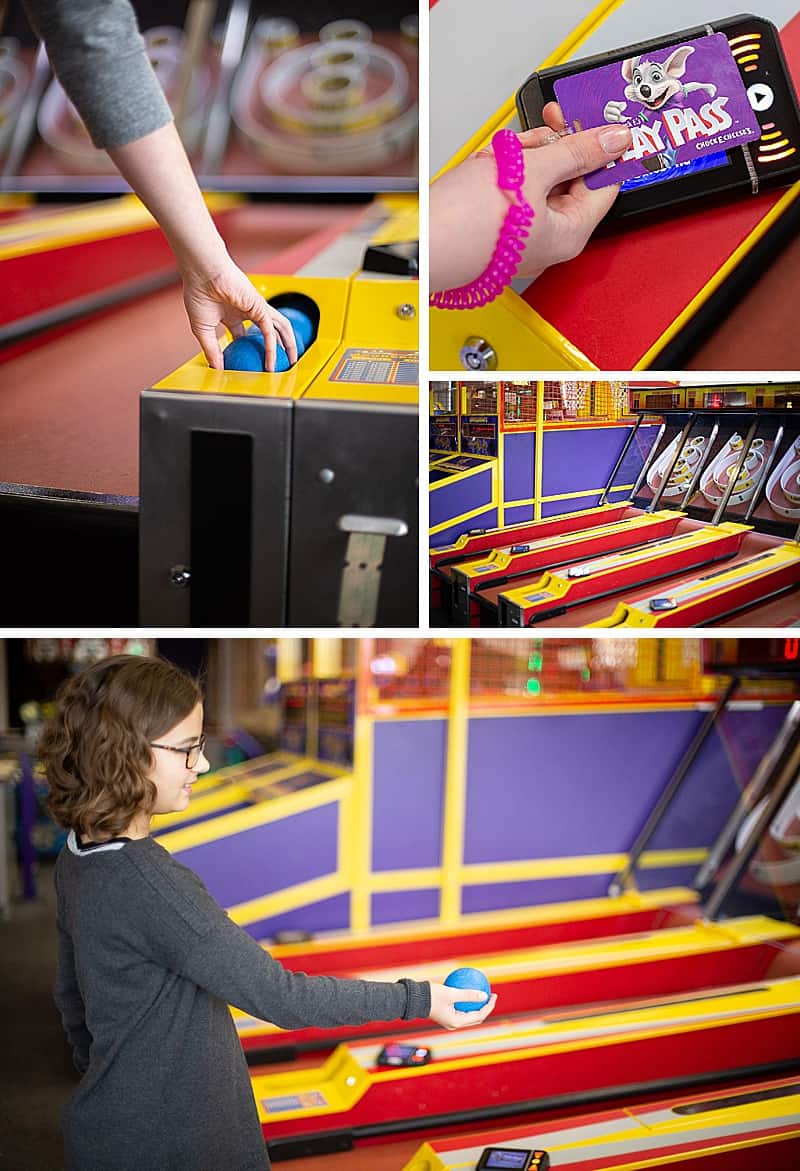
How can I whoop my kids' butts and win the Chuck E. Cheese's "All You Can Play" Family Challenge?
So, you wanna actually try to WIN the All You Can Play challenge to ensure you foster a healthy competitive drive? Here are few quick parent-to-parent tips.
Be present and PLAY. Be sure to participate and buy All You Can Play access for yourself, too. Put your phone away and get down to business! Don't hold back to spare feelings. If you're good, be good.
Distract them with classic games that YOU ROCK at, like Skee-Ball. I challenged my girls to multiple games of Skee-Ball in hopes of scoring more tickets than them. Truth be told, it also happens to be my favorite game at Chuck E. Cheese's. Unfortunately for me, it turns out I'm raising Skee-Ball champs, as they eventually bested me at my own game.
Ask them if they'd like more pizza. Just kidding! If your family wants to pause for a pizza break, though, you can pause your All You Can Play time at any kiosk. (How cool is that?!)
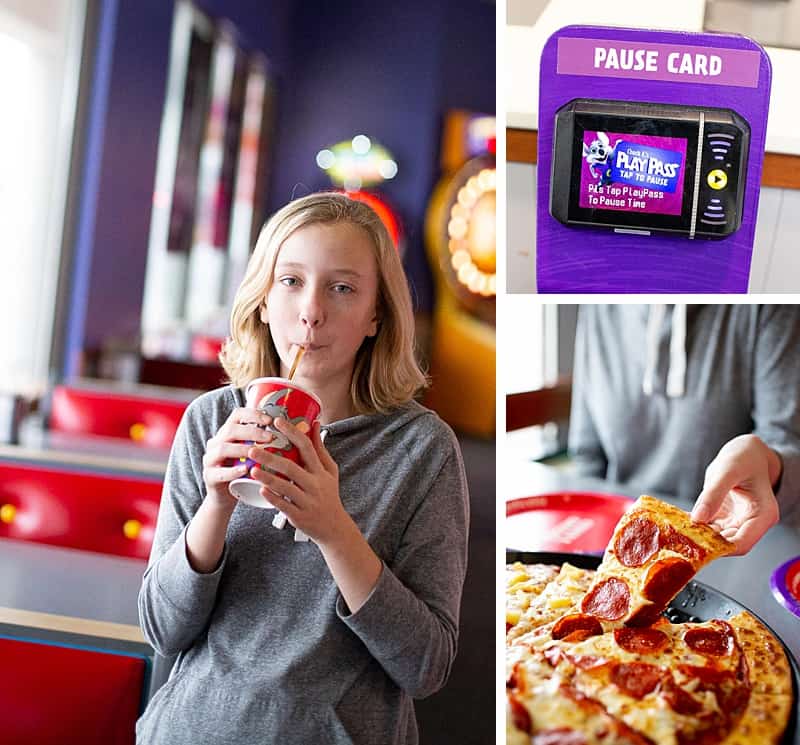
How should "success" be defined when talking about competition with kids?
It's helpful to teach kids to define "success" not just as winning an activity against someone else, but also as reaching a goal they've put in their mind to accomplish for themselves. This approach allows your child to compete and still feel like a winner — no matter how the competition ends.
For example, each of the girls set a goal of scoring 1,000 tickets during our All You Can Play time at Chuck E. Cheese's.
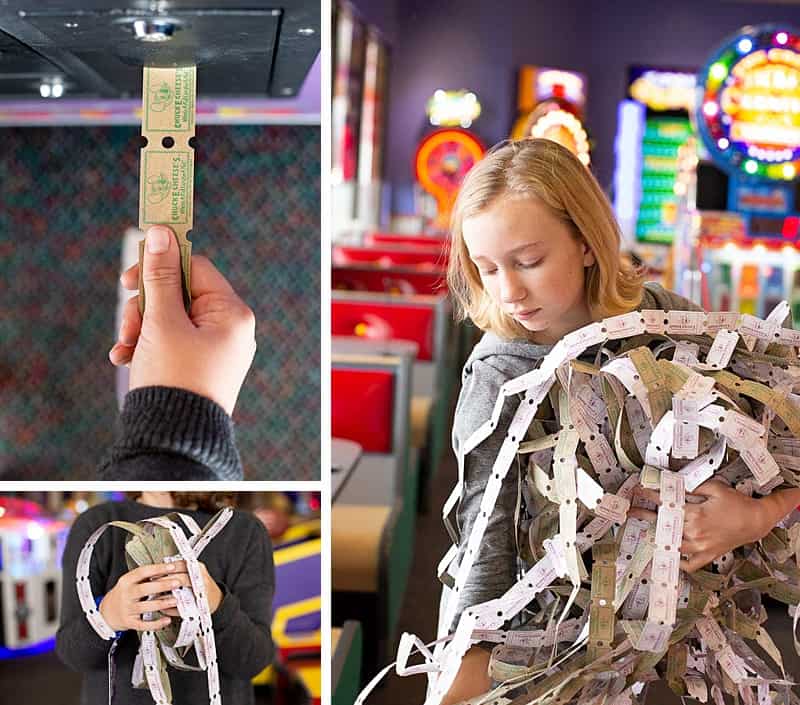
We also agreed at the start to pool all our tickets to trade them for one super-awesome prize, instead of multiple little ones. This created a great team effort, despite individual competition!
Let your kids see you compete, win, and lose with style.
A quick reminder that children are great imitators. They're watching your actions from day to day, so show them how to compete, win, and lose with style. Be transparent about your ambitions, efforts, and defeats with your kids.
We schedule a weekly board game night to practice these skill sets. Of course, competing in the All You Can Play Challenge is a fun opportunity to play with your kids and practice healthy competition, too.
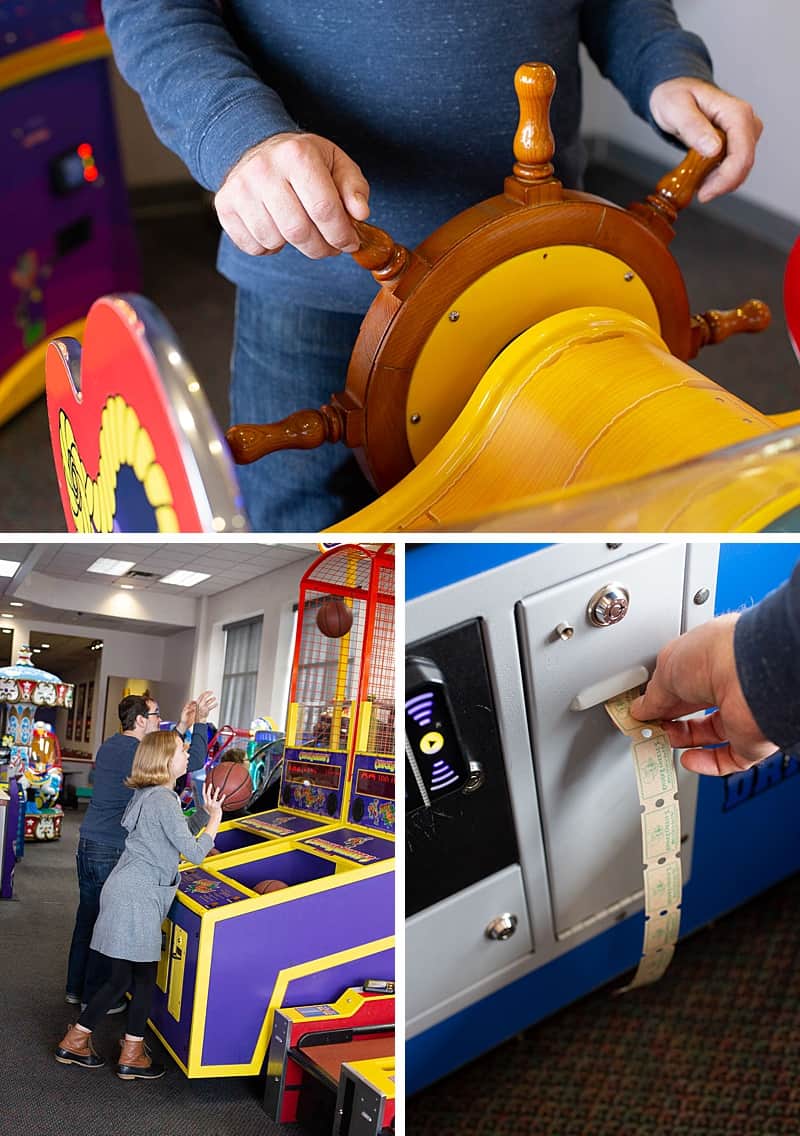
Awww . . .
I've got a similar photo of me as a kid with this handsome hunk . . .
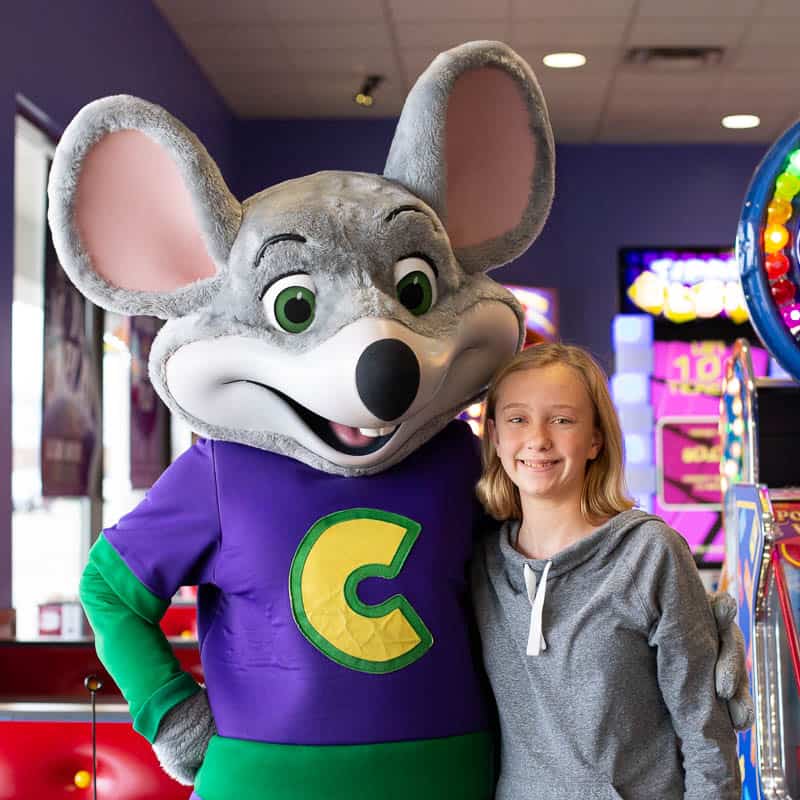
We had a wonderful winter afternoon connecting, competing, and spending quality time together at Chuck E. Cheese's.
I hope you enjoy your shared family time there, too.
May the best {ahem} PARENT win!

P.S. Did you watch the video I mentioned above? This kiddo totally cracks me up.
Don't forget the more you visit, the more rewards you can earn to use on food, drinks, games, and prizes. So sign-up for Chuck E. Cheese's loyalty program, More Cheese Rewards, by downloading the mobile app via iTunes or Google Play!
Follow Chuck E. Cheese's online: Website | Facebook | Instagram
 |
 |
 |
 |
 |
|
 |
|||||
Disclosure of Material Connection: This is a sponsored conversation written by me on behalf of Chuck E. Cheese's. The opinions and text are all mine. The company who sponsored it compensated me via a cash payment, gift, or something else of value to write it. Regardless, I only recommend products or services I use personally and believe will be good for my readers. I am disclosing this in accordance with the Federal Trade Commission’s 16 CFR, Part 255: “Guides Concerning the Use of Endorsements and Testimonials in Advertising.”
![]()




